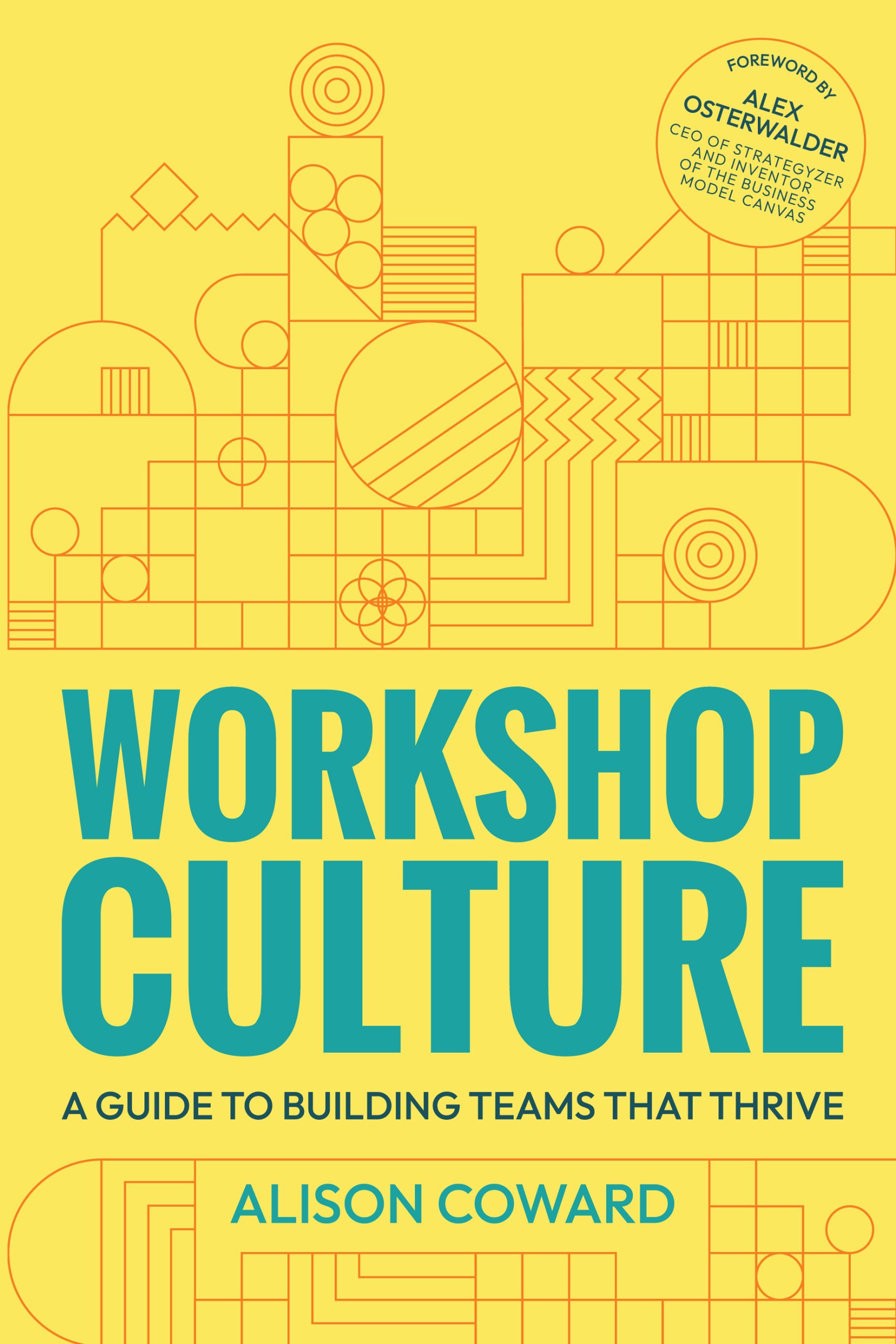I found myself nodding sagely as I read the first half of the book. As a seasoned facilitator (I have the scars) much of what Coward talks about is bread and butter to me, and the arguments for workshops are compelling and familiar. The stats speak for themselves, and the examples of the power of more collaborative approaches are undeniable. The book challenges the traditional meeting culture and approach – highlighting the lack of productivity and potential damage to team cohesion that it brings. Coward talks about the ‘meeting reset’ (or as Slack termed it the ‘meeting firesale’) and how many forward thinking organisations are tearing up the calendars in an effort to create better working practices.
But, if we bin the traditional meeting, what do we replace it with? Workshops? Kind of, but not exactly, is Coward’s position. Her stance is that we need to use our group time more wisely and build in new practices and approaches that utilise some of the group working techniques that help teams reach better outcomes more quickly. What she doesn’t say is that every meeting should be a workshop. Recognising the need to focus on outputs and strategic planning alongside the free thinking, she advocates a balance. As she frames it ‘balancing people with business and thinking with doing’. That sounds obvious when said out loud, but seems to be very uneven in many organisations.
It’s halfway through that you realise it’s not going to provide handy lift and drop frameworks for workshops. If you buy the book to help you run a workshop, you’ll initially be disappointed. For me, it’s a meta analysis of the concept, rather than a step by step guide to running sessions. That said, tips and tricks are scattered throughout the book, but you’ll have to do the work yourself to draw them together to make your own flows.
For us practitioners, the real gold starts in Part Three – when Coward shares a five element model that describes her approach to workshops. It’s clear, simple and highly implementable. I love it, and I will bet that many others like me will see it as a sharp bell-ring of thinking and clarity. It reminds you to start with first principles, rather than dive in and workshop for workshop’s sake. And, if you are following the book’s principles and looking to build a more collaborative team, then it’s the stepping stones you need to take in order to get there.
My criticism of the book, and indeed all business tomes, is the light-touch that some subjects receive. And yes, I know that the book would be the size of an encyclopaedia if it featured everything, but I would call out the need for more support in the ‘how to be a facilitator’ section. Likely, Coward has a huge personal resource of experience in this area, which isn’t fully covered in the three pages of advice in the book. It’s akin to the famous ‘Now Fold in the Cheese’ scene from Schitt’s Creek – sometimes we know so much that the advice we give only describes the outline of what’s needed. That said, it’s damn hard to share experience – my own path to facilitation mastery has had many ups and downs that you ‘really had to be there’ to learn from.
Ultimately though, the book’s aim is to help us step past the clunky ‘hey let’s workshop this’ mind-set and build a true culture of dialogue and ideation. And the book excels at this. In part, because Coward takes such care to construct the narrative and guidance, and also in part because she nails THE biggest problem with workshops; the one that is creating that sense of fatigue I talked about earlier. It’s the lack of follow-through. Done poorly, workshops are a false dawn for teams, creating a sense of achievement, shared development and energy which then peters out as people fail to take action. The book calls this out repeatedly and talks at several points about the ways in which teams should build the outcomes into daily working, how they should create feedback loops to test their ideas, and how they should build on earlier work in subsequent sessions.
Coward recognises the frustration that some people have with workshops, and builds this into her approach. The workshop culture isn’t lots of sticky-note-led meetings, it’s a flow of team sessions that have purpose, use the right tools at the right time and ensure actions are taken as a result. That sounds like good sense to me, and the book makes it feel achievable.
If you view this book as an advisor, you will get the most out of it. It’s your own vignette of Alison Coward – giving you positive steer, guidance and a route to a better team dynamic. It won’t do all the work for you, and you’ll likely need to bring in other resources to get there, but it will inspire you to get up and make changes. Lets “Make Workshops Great Again” people.
Published by Practical Inspiration Publishing
Reviewed by Chris Preston, a culture expert and one of the founding partners of The Culture Builders







